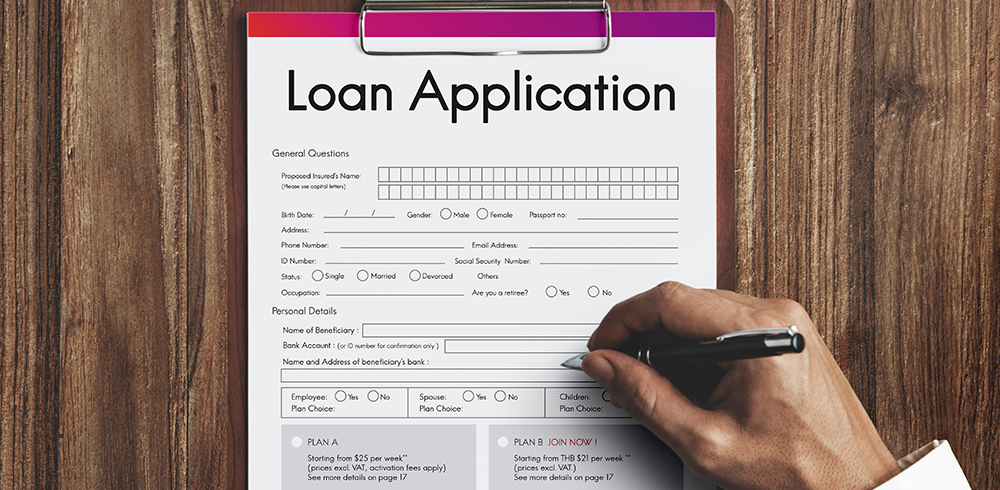Today, let us explore a financial instrument that plays a significant role in shaping the financial landscape for many – Term Loans. A term loan is a type of loan you get from a bank or lender that you repay over a set period. It is useful for both individuals and businesses who need money for specific needs.
In this blog, we will delve into the term loan meaning, classifications, benefits, and eligibility criteria associated with term loans, empowering you to make informed decisions about your financial future.
What is a Term Loan?
First things first, let’s understand the term loan meaning. In simple words, a term loan is a basic loan where you borrow a certain amount of money and agree to pay it back over a fixed period. Here, you make regular payments, usually every month, until the loan is repaid. Term loans can be used for making big purchases, consolidating other debts, or fund various needs such as education, home renovation loan, medical expenses, or even a small business.
Types of Term Loan
Based on the tenure of the loan, the major types of term loans are:
Short-Term Loan
A short-term loan, as the name suggests, is for a short duration and is usually paid off within a year. It is useful for those who need quick cash for urgent needs like covering short-term expenses. Keep in mind that short-term loans often have higher interest rates as they are paid back quickly.
Intermediate-Term Loan
Intermediate-term loans are for over a period of one to five years. They are a good choice if you need funds for medium-term projects like buying a new car or expanding your business. The interest rates for these loans are usually lower than those of short-term loans.
Long-Term Loan
Long-term loans are usually repaid over a period longer than five years. They are often used for big investments like buying a house, large-scale business expansion, or funding higher education. The interest rates for long-term loans are generally lower compared to short-term and medium-term loans.

Benefits of Term Loan
The major advantages of term loan include:
- Structured Repayment: With term loans, you know exactly how much you need to repay and when. This structured repayment schedule helps you plan your finances efficiently.
- Fixed Interest Rates: Many term loans come with fixed interest rates, providing predictability and protecting you from market fluctuations. This stability ensures that your monthly payments remain consistent throughout the loan tenure.
- Flexible Loan Amounts: Depending on your financial needs and eligibility, term loans offer flexibility in choosing the loan amount. This allows you to tailor the loan to your specific requirements.
- Diverse Usage: Term loans can be utilised for different purposes, whether it is financing your dream home, pursuing higher education, or consolidating existing debts.
How to Apply for a Term Loan
Here is a step-by-step guide on how to apply for a term loan:
- Step 1: Check Your Needs
First, decide how much money you need and what you need to use it for. - Step 2: Compare Lenders
Now, look at different lenders and compare their loan terms, interest rates, and fees. - Step 3: Gather Documents
Once you have finalised your term loan provider, you must ensure that all necessary loan application documents like proof of income and financial statements are ready. - Step 4: Submit Your Application
Fill out and submit the loan application form. - Step 5: Review and Sign
Once approved, review the loan agreement carefully and sign it to get the funds.
Term Loan Eligibility Criteria
Here are the eligibility criteria you need to meet to qualify for a term loan:
- Steady Income: Term loan lenders look for a stable source of income before approving a loan application. A consistent monthly salary or income stream enhances your eligibility for term loans.
- Credit Score: A healthy credit score is crucial when applying for term loans. Lenders use your credit history to understand your creditworthiness, so ensure you maintain a good credit score by paying your bills on time and managing your debts responsibly.
- Employment Stability: Lenders prefer applicants with a stable employment history. Being with the same employer for an extended period enhances your credibility as a borrower.
- Debt-to-Income Ratio: Your debt-to-income ratio, which is the proportion of your monthly income used to repay debts, is a crucial factor. Lenders evaluate this ratio to determine your ability to manage additional debt.
Conclusion
A term loan can be a powerful financial tool, providing a structured way to meet diverse financial needs. Remember, informed decisions lead to financial empowerment. So, explore your options, assess your needs, and embark on your financial journey with confidence.
If you are looking for a quick and convenient option, then you must check out the CASHe app. CASHe offers instant personal loans with easy terms, and hence, is a great choice for your urgent financial needs.
Here’s to achieving your goals and securing a brighter financial future!
FAQs
1. What is an example of a term loan?
A loan for buying a house is an example of a term loan as here you borrow a large amount and repay it over a fixed period.
2. How do term loans differ from personal loans?
Term loans usually secured loans and have fixed repayment periods and amounts, while personal loans might be unsecured and have varying terms.
3. Why do businesses get term loans?
Businesses use term loans to finance large investments like expanding operations.
4. What are the typical uses of a term loan?
The most common uses include expanding a business and consolidating existing debts.
5. What are the common attributes of term loans?
Term loans have fixed amounts, a set repayment schedule, and a specified interest rate. They can be short, intermediate, or long-term depending on how long you have to repay them.








